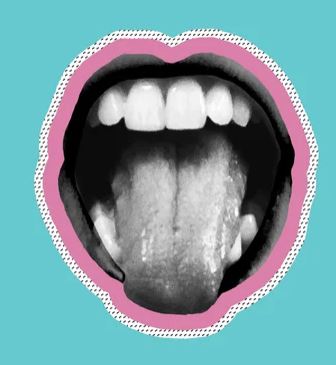
When you catch a cold or flu, your body produces excessive amounts of mucus and phlegm. This raises an important question: Is it better to swallow phlegm or spit it out? To answer this, we need to understand the nature of phlegm, its function in the body, and the effects of both swallowing and spitting on your health.Spit or Swallow Mucus When Sick?
What Is Phlegm?
Phlegm is a sticky substance produced by the mucous membranes in the respiratory system. It consists mainly of water, proteins, antibodies, and dead cells. Its primary function is to trap germs and foreign particles, preventing them from reaching the lungs.Spit or Swallow Mucus When Sick?
Difference Between Mucus and Phlegm:
- Mucus: Continuously secreted in the nose and sinuses
- Phlegm: A thick type of mucus produced in the lungs and lower airways during illness
Why Does Phlegm Production Increase When Sick?
The body increases phlegm production as a defense mechanism to:
- Trap viruses and bacteria
- Expel pathogens from the respiratory tract
- Prevent dehydration of mucous membranes
- Facilitate coughing to remove contaminants
Swallowing Phlegm: Pros and Cons
Benefits of Swallowing Phlegm:
- Natural process: Healthy individuals swallow about 1-1.5 liters of mucus daily without noticing
- Nutrient recycling: The body reabsorbs water and beneficial components
- Energy conservation: Requires no extra effort like spitting
- Social convenience: More socially acceptable in public
Drawbacks of Swallowing Phlegm:
- Germ recycling: May reintroduce some microbes to the digestive system
- Stomach irritation: Can cause nausea or vomiting in some people
- Unpleasant taste: May irritate the throat and stomach
Spitting Phlegm: Pros and Cons
Advantages of Spitting Phlegm:
- Pathogen removal: Eliminates germs from the body
- Congestion relief: Helps clear respiratory passages
- Prevents reinfection: Reduces chances of self-reinfection
- Better diagnosis: Phlegm color can help identify infection type
Disadvantages of Spitting Phlegm:
- Impractical: Requires tissues or a nearby sink
- Socially unacceptable: Considered inappropriate in public
- Fluid loss: May contribute to dehydration if excessive
- Throat irritation: Can cause dry cough when overdone
Medical Experts’ Opinions
According to Dr. John Bright, pulmonologist:
“In most cases, it doesn’t matter if you swallow or spit phlegm. Stomach acids kill most germs. But with excessive or thick phlegm, spitting may better relieve congestion.”
Dr. Sarah Lynch, infectious disease specialist, advises:
“With bacterial infections, spitting helps reduce bacterial load. For common viral infections, the difference is minimal.”
When Should You Spit Phlegm?
Spitting is preferable when:
- Having a bacterial infection (like pneumonia)
- Phlegm is colored (yellow, green, or bloody)
- Swallowing causes nausea
- It’s thick and causes breathing difficulty
- You have immune disorders that weaken defenses
Effective Phlegm Removal Tips
- Drink warm fluids: Helps thin phlegm
- Use a humidifier: Moist air eases phlegm expulsion
- Breathing exercises: Help clear phlegm from lungs
- Steam therapy: Inhaling steam opens airways
- Expectorants: Under medical supervision to loosen phlegm
Risks of Swallowing Phlegm in Special Cases
Some health conditions require caution:
- GERD patients: May increase acid reflux
- Chronic lung diseases: Like COPD with thicker phlegm
- Weakened immunity: Higher risk of bacterial infections
- Young children: May struggle with excess phlegm
Common Phlegm Misconceptions
- Swallowed phlegm causes infection: False – stomach acids kill most germs
- Color indicates severity: Not always – changes can be normal
- All phlegm must be removed: False – some is needed for airway moisture
- Medications stop production: Most just thin phlegm without stopping production
Managing Phlegm in Children
Children handle phlegm differently:
- Infants can’t spit and swallow most phlegm
- Nasal aspirators can relieve congestion
- Consult a doctor if phlegm causes breathing difficulty
- Avoid cough medicines for under-4s without prescription
When to See a Doctor
Consult a physician if you notice:
- Bloody or brown phlegm
- Excessive production lasting over 10 days
- Phlegm with high fever
- Severe breathing difficulty
- Sharp chest pain when coughing
Final Verdict: What’s Better?
The spit-or-swallow decision depends on:
- Illness type: Viral or bacterial
- Phlegm amount: Minimal or excessive
- Personal comfort: What feels better for your body
- Environment: Ability to spit hygienically
Ultimately, there’s no one-size-fits-all answer. What matters most is listening to your body and doing what brings relief during illness. If symptoms worsen or become concerning, don’t hesitate to seek medical advice.

Гортензии в букете с бесплатной доставкой прямо в Москве — это отличное решение для тех, кто хочет удивить своих близких. Именно гортензии привносят в подарок нежность и красоту, идеально подходя для любого случая.
[url=https://gortenziimsk.ru/]Букет гортензий с бесплатной доставкой в Москве[/url].
Доступная доставка букета гортензий осуществляется в любую точку города. Наши флористы тщательно подготовят каждый букет, чтобы он стал настоящим произведением искусства.
Гортензии прекрасно дополняют любые цветочные композиции и подходят для различных случаев. Эти цветы могут стать стильным акцентом в вашем доме, радующим глаз каждый день.
Не забывайте, что красивые цветы — это отличный способ выразить свои чувства. Заказать букет гортензий с бесплатной доставкой можно всего лишь в несколько кликов.
[…] Approval for Younger Age Groups: Gruber opposed technical team recommendations that confirmed vaccine safety and efficacy for […]